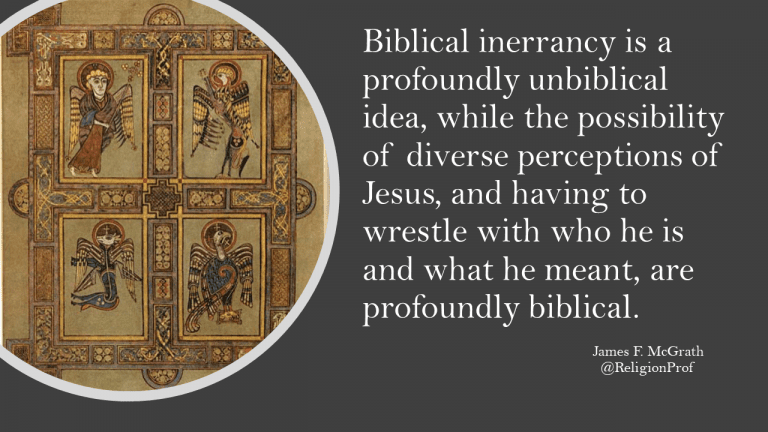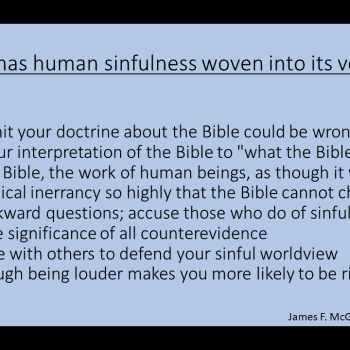The title of this post says it all: Fundamentalism is fundamentally unbiblical.
Now, before you ask, I obviously don’t mean that Christian fundamentalists do not quote the Bible in support of their views, beliefs and practices. They do. Of course, they consistently condemn others for “picking and choosing” and yet that is what they themselves are doing, but that’s not the subject of today’s post. Just about anyone who wishes to can be “biblical” in the sense of finding verses that support their views, and hoping no one notices the ones they aren’t quoting. (In fact, fundamentalists have found a solution to this problem. They call it “interpreting Scripture by Scripture. It means that if the Bible says something you agree with, you can dismiss any places that seem to disagree with those verses you like, since they can’t possibly mean what they seem to mean, since Scripture cannot contradict Scripture. Oh, my…)
I’m not even accusing them of being unbiblical in the sense that they are at odds with parts of the Bible. They are. But parts of the Bible itself are at odds with parts of the Bible, and some of what I think certainly is too, and it would be hypocritical to criticize them for being unbiblical in this sense.
So in what way is Christian fundamentalism fundamentally unbiblical? In short, they deny that the Bible is what it is. To claim that the Bible is simple when it is complex, to claim that it is clear when it is not, to claim that it is uniform when it is diverse, to claim that it is monolithic when it is pluriform, to claim that it is flawless when it is characterized throughout by the limitations and failings of its human authors – what could possibly be more unbiblical than this?

See also:
God is Inerrant and Infallible: The Bible is Neither
Today’s post is a repost of something I wrote in 2008.













